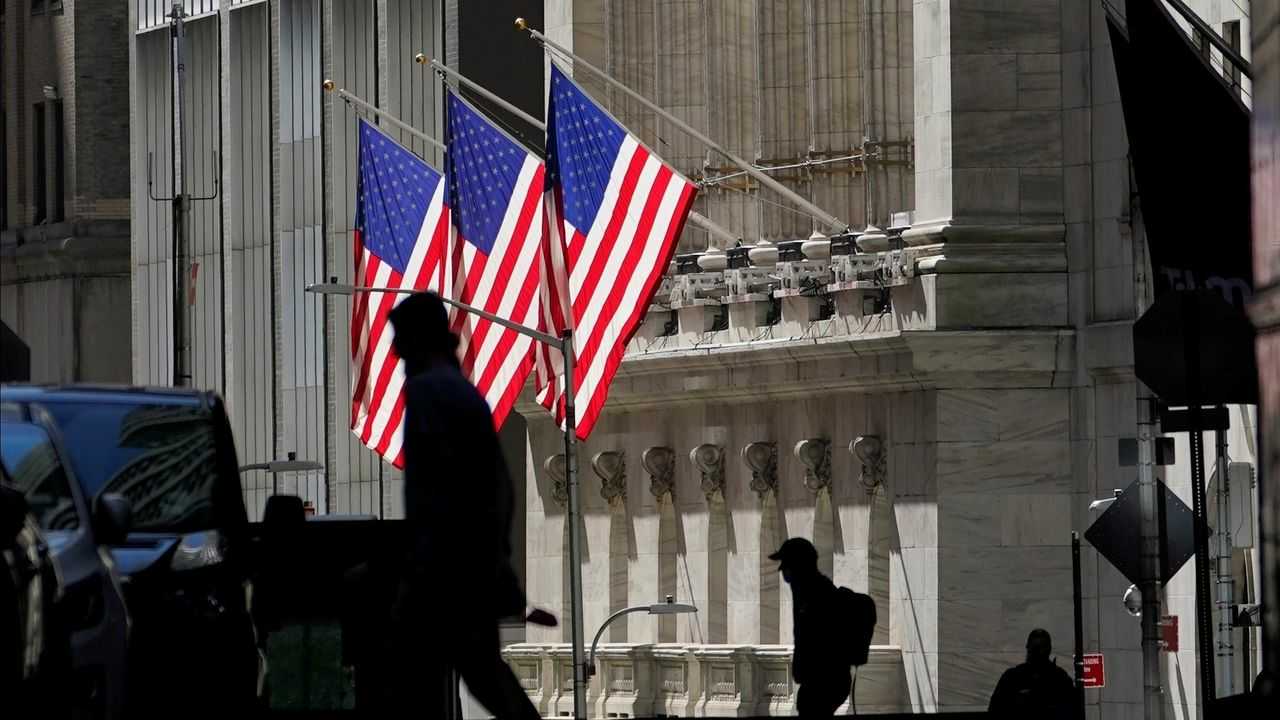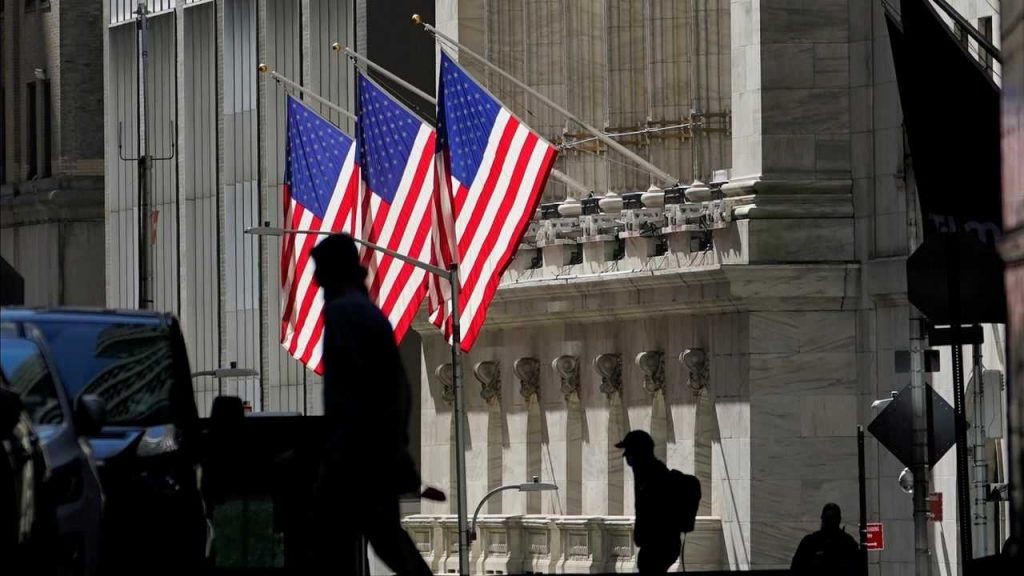
Share buybacks and the parasitism of US capitalism
By Nick Beams
The economist William Lazonick is a long-time campaigner against share buybacks by major corporations which he rightly regards as an extreme form of parasitism, financial plundering and a major factor in social inequality.
His political perspective is, however, an entirely reformist one. He would like to see increased regulation, starting with a total ban on share buybacks, which, along with other regulatory reforms, would be aimed at bringing more investment into the real economy, instead of corporate profits being used to feather the nests of share traders, financial investors, corporate executives and speculators.

But notwithstanding his hankering for a return to the “good old days” before the onset of what he calls “predatory value extraction,” and his delusionary hope that someday, somehow the Democratic Party might take a stand curb it, his analysis provides important facts and figures.
The data he provides expose the rot and decay at the very heart of the US economy, but also very importantly, that the resources generated by the labour of the working class—reflected in corporate profit numbers—are more than enough to provide a major uplift in living standards.
In other words, the answer to the question so often raised by the opponent of even the mildest social reforms “where is the money going to come from?” is answered, at least partially in the data which Lazonick provides.
He sets out a summary of his findings, based on a just published book Investing in Innovation: Confronting Predatory Value Extraction in the US Corporation, in an article on the web site of the left-reformist Institute for New Economic Thinking.
Lazonick begins by noting that according to Oxfam in 2022, with inflation eroding real wages, some 32 percent of the US workforce had hourly wages of $15 or less. And that even in the high-tech sector, which contains the largest number of high-paid jobs, insecurity has been growing with 225,000 layoffs in the first seven months of this year on top of 165,000 layoffs in 2022.
The main instrument of “predatory value extraction,” he writes, is the open market repurchase of a corporation’s shares in order to manipulate the stock price.
“In 2012–2021, the 474 corporations included in the S&P 500 Index in January 2022 that were listed throughout the decade funnelled $5.7 trillion into the stock market as buybacks, equal to 55 percent of their combined net income, and paid $4.2 trillion to shareholders as dividends, another 41 percent of net income.”
He notes that stock buybacks increase the gains of share sellers, “including senior corporate executives, with their copious stock-based pay, and hedge-fund managers, who are in the business of timing the buying and selling of shares on the stock market.”
Since they became widespread in the 1980s, after previously being ruled as an illegal form of stock market manipulation, share buybacks have “contributed to inequitable income distribution, unstable employment opportunities, and fragile productivity growth in the US economy.”
One of the most egregious expressions of this phenomenon is in the pharmaceutical industry. Five of the largest industrial companies engaged in this operation—Aman, Gilead Sciences, Johnson & Johnson, Merck, and Pfizer—come from this sector.
The American population is forced to pay some of the highest drug prices in the world. Big Pharma “justifies” this on the grounds that high prices for existing drugs are needed so that the profits they generate can be used to finance research for new medicines.
As Lazonick’s data reveal, this is complete fiction. The profits are used to boost stock market values.
The distribution of income to shareholders and share sellers via dividends and share buybacks of the 14 pharmaceutical companies in the S&P 500 in the decade 2012–2021 represented 110 percent of net incomes compared to the average of 96 percent.
“The $747 billion that the pharmaceutical companies distributed to shareholders/sharesellers was 13 percent greater than the $600 billion that these corporations expended on research and development over the decade,” according to Lazonick.
Share buyback operations extend across the board, including energy and the high-tech firms and the aircraft manufacturer Boeing.
“Boeing became highly financialized after its merger with McDonnell Douglas in 1997. Its senior executives’ obsessions with the company’s stock yields bears much of the blame for the crashes of its 737 MAX planes in October 2018 and March 2019.”
From the beginning of 2013 to the second crash on March 10, 2019, Boeing did $43.4 billion in buybacks, equal to 118 percent of its net income over this period on top of the 43 percent distributed as dividends. In other words, money that should have been spent on securing the highest possible standards for its planes was delivered into the hands of stock market players including company executives.
Apple is another major practitioner of buybacks. In 2018 when it was able to repatriate $285 billion in cash, due to legislation passed by the Trump administration, CEO Tim Cook said the company would buy “some of our stock.”
It turned out that stock purchases in 2018 were $72.7 billion, eclipsing by a long way the previous record high of $45 billion in 2014. A major beneficiary was Warren Buffett, one of the richest men in the world.
In his ongoing work on share buybacks, Lazonick has documented a significant component of the rot and decay at the heart of American capitalism, which is at the centre of its deepening historic crisis.
But nowhere does he provide an analysis of it. Insofar as he provides an explanation of why there is not the reinvestment of profits in industry and improved wages as there was, at least to some extent, during the post war boom, it is based on shifts in policy, in particular the legislation under the Reagan administration in 1982 which made previous illegal share buybacks legal.
This orientation is based on a political perspective, namely, that changes in the other direction, starting with a ban on share buybacks and changes to the way corporate executives are paid and rewarded, can bring about a course correction.
What he leaves out is any analysis of the deep-seated shifts in the very foundations of the capitalist economy which have been the driving force of the changes in the way corporations operated and the changes in the regulatory framework.
The end of the post-war boom in the 1970s resulted from a decline in the rate of profit. This was not a mere conjunctural downturn but the outcome of a process discovered by Marx as arising from inherent contradictions within the capitalist economy itself.
Its eruption to the surface of economic life had major consequences.
Starting in the late 1970s and extending into the next decade, there was a massive restructuring of economic and class relations—the assault on the working class in the 1980s, the shutdown of whole sections of industry and the creation of rust belts, the globalisation of production to take advantage of cheaper sources of labour.
A key aspect of this “restructuring” was the rise and rise of financialisation, that is, the accumulation of profit not through the expansion of production and investment as had been the case in the post-war boom but via financial market operations.
The removal of the ban on share buybacks was only one of many changes in the decade of the 1980s such that financial operations once regarded as illegal, or at least highly dubious, are standard operating procedure in the financial world of today.
As Marx noted, a fall in the rate of profit is accompanied by “swindling and the general promotion of swindling.” This is no longer an episodic or passing phenomenon but, as the ever-deeper financial crises of the past three decades reveal, is embedded in the US economy.
This parasitism, of which share buybacks are an expression, is not only the cause of ever widening social inequality. It finds its consummate expression in the drive by US imperialism to counter its economic decline through wars of plunder.
The historic crisis of American capitalism, threatening the very future of mankind, is not going to be overcome by legislation, as would-be reformers like to maintain. Rather, it points to the necessity for the overthrow of the entire profit system by the working class in the political struggle for socialism.
[This article was originally published by WSWS here on August 25, 2023]

